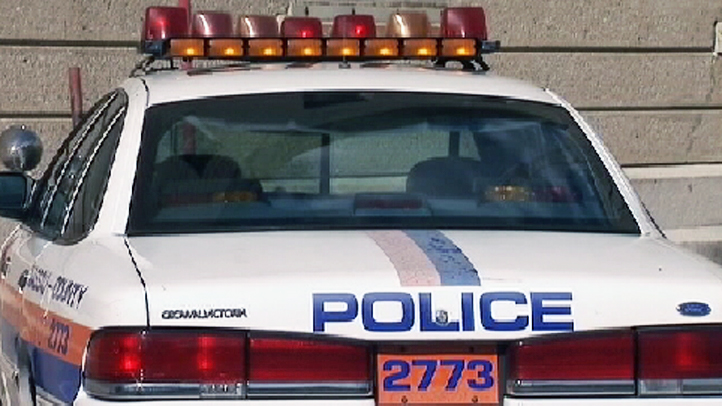Booze to-go was one of the most popular COVID-19 programs across New York state for people and business owners alike -- and the governor took the next step Wednesday in her effort to make the for-the-road alcohol option permanent.
Gov. Kathy Hochul initially announced her desire to legalize to-go alcohol in her State of the State in January, shortly after she authorized a temporary return.
The move came as many restaurants and bars found themselves once again limiting hours or closing their doors entirely as they dealt with staffing shortages and omicron-fueled diner wariness. They needed that revenue stream badly.
The measure first was implemented as New York emerged from the early days of lockdown in 2020. The program was in effect until June when state lawmakers let the emergency regulation that permitted the sale of booze to go to expire.
Get Tri-state area news and weather forecasts to your inbox. Sign up for NBC New York newsletters.
On Wednesday, Hochul announced the proposal to permanently legalize to-go drinks, part of an overarching budgetary effort to revitalize the state's multi-billion-dollar hospitality industry, which was one of the hardest-hit by the pandemic.
“Yes, there has been opposition in the past, but I’m willing to take it to the people,” Hochul said. “You’ve heard from the businesses, we heard from consumers. And I believe that we’re making a very strong case to get this passed.
Her office says the policy provided a vital economic lifeline to New York bars and restaurants during the pandemic, and reestablishing it, under proper limitations, will help to ensure they get back on their feet and thrive going forward.
Customers can still purchase some drinks to-go: New York has allowed takeout sales of beer since the end of Prohibition, and restaurants can also sell partially consumed bottles of wine to-go.
But Hochul's proposal could add more alcoholic beverages like cocktails and bottles of wine, and allow state liquor regulators to limit the volume and quantity of drinks that restaurants and bars could sell. State regulators could also limit the time of day for takeout sales and require them to seal open beverages.
Local
New York’s previous to-go policy required customers to also purchase food, but Hochul suggested that’s no longer necessary. “I don’t believe it will be necessary to have food associated with it,” she said.
The governor says the State Liquor Authority, which regulates and controls the manufacturing, transporting and distribution of alcoholic beverages in New York, also needs an upgrade. Hochul plans to make that agency more efficient, including through a comprehensive overhaul of its decades-old licensing and compliance databases, streamlining of the application process and adding $2 million in spending to hire more than 30 full-time employees, among other improvements.
The alcohol-to-go won't come back overnight, however. It must be approved by the legislature since the state of emergency that once allowed it is no longer in effect. But Hochul and her office, along with industry advocates, intend to push hard.
"New York's nightlife and hospitality industry are second to none, and our state cannot truly come back from this pandemic until we revitalize this crucial sector of our economy and the hundreds of thousands of jobs it provides," she said.
"We owe it to our small businesses to provide them with the resources and regulatory framework they need to grow and thrive, which is why is it's important that we reform and modernize the State Liquor Authority," the Democrat added. "This is just one of several steps we are taking to help small businesses come back from the pandemic stronger than ever before."
The NYC Hospitality Alliance, which bills itself as the city's leading voice for the nightlife and restaurant industry, offered its full support for Hochul's plan.
"New York’s restaurant industry has been devastated by the pandemic," Executive Director Andrew Rigie said in a statement. "That’s why smart policy like the temporary liquor license law is helping small businesses open much faster while creating new jobs, and why it’s necessary to reinstate the popular drinks to go policy that provides struggling businesses an important revenue stream while giving New Yorkers what they want, which is wine and cocktails for takeout and delivery from their favorite restaurants and bars
Movie theaters, also hit hard by the pandemic, are eligible to apply for licenses to serve beer and wine, too, under an SLA-issued ruling in mid-January -- and the efforts Hochul shared Wednesday will help expedite the approval process.
Liquor store owners and industry lobbyists have for months pushed lawmakers to preserve pre-pandemic restrictions on to-go sales. Such critics say proposals to resume to-go sales would cut into liquor stores' profits, and fuel bad behaviors like drunk driving or public urination.
Stefan Kalogridis, board president of the state liquor store association, has argued the state lacks the manpower to ensure restaurants aren't acting like liquor stores, which face tight restrictions including limited hours to sell alcohol.
Kalogridis told the Albany Times Union newspaper last March that his association would support a law allowing takeout cocktails and individual servings of wine.
Lawmakers failed to pass such a bill last year following intense lobbying by liquor store owners.
In February, the New York State Liquor Store Association released a statement to WHAM-TV saying it's “against bringing back takeout cocktails.” Kalogridis' association didn't immediately respond to request for comment Wednesday.
Scott Wexler, executive director of the Empire State Restaurant and Tavern Association, says the liquor store lobby is fear-mongering and pressuring lawmakers fearful of hurting any small business.
“The liquor stores have great emotion and they evoke great sympathy, but there are no facts to support their argument,” Wexler said.
Wexler said liquor stores sell 85 percent of all wine and liquor in the state.
Hochul spokesperson Hazel Crampton-Hays said regulators will decide whether to allow to-go sales of bottles of alcohol again.
Wexler said his association appreciates Hochul's approach of leaving specifics to regulators, but said restaurant and bar owners could live with a ban on takeout sales of bottles of whiskey or vodka.
“We are fighting for bottles of wine, we’re not fighting for bottles of liquor,” said Wexler, who said the goal is recreating the dine-in experience.
Local laws prohibiting open containers of alcohol in public are widespread in New York. Manhattan decriminalized public drinking in 2016, although individuals can still face a summons or fine. Sen. Julia Salazar, a Democrat representing parts of Brooklyn, is sponsoring a bill to allow for consumption of alcohol in public places besides cars.



